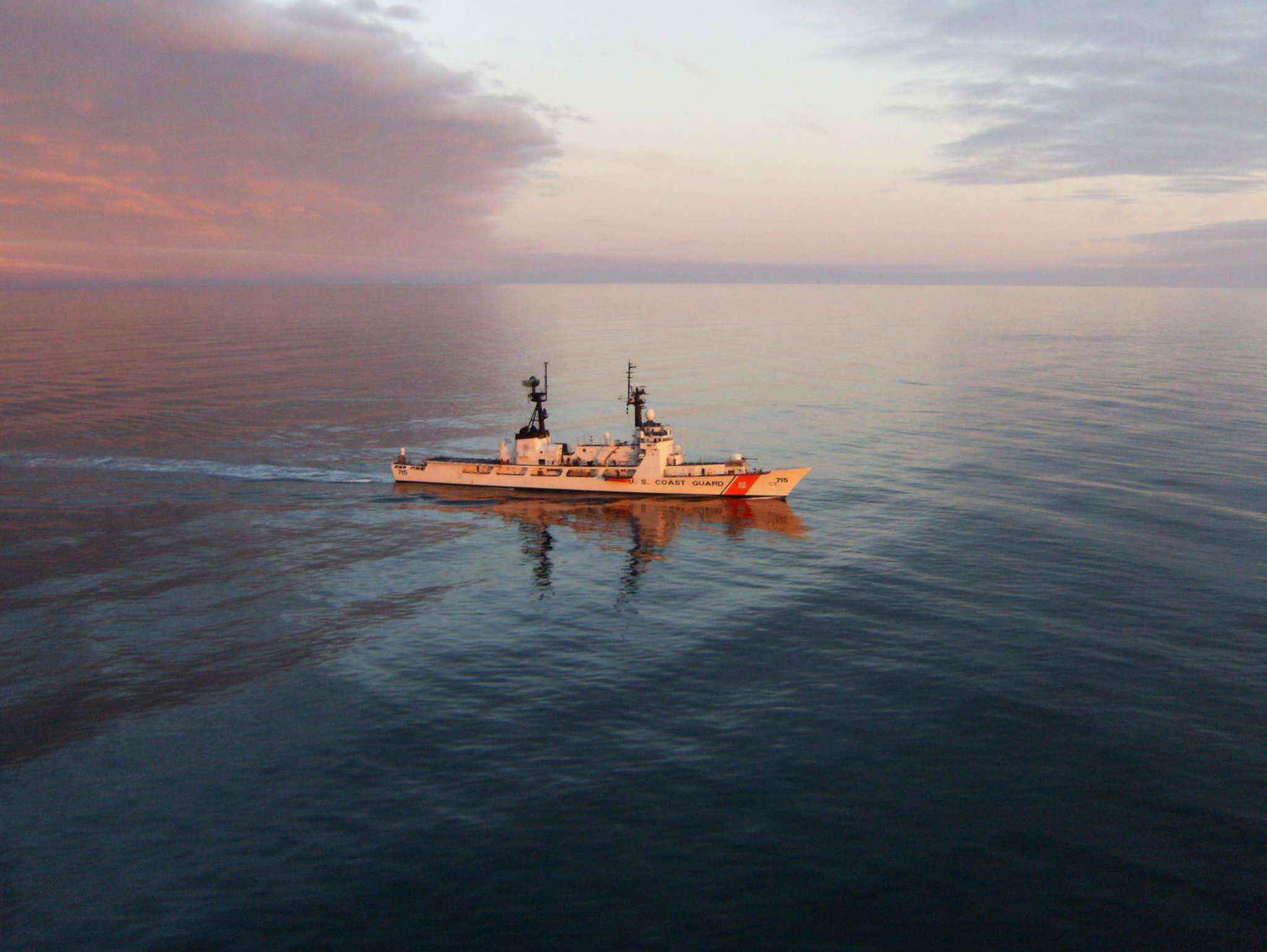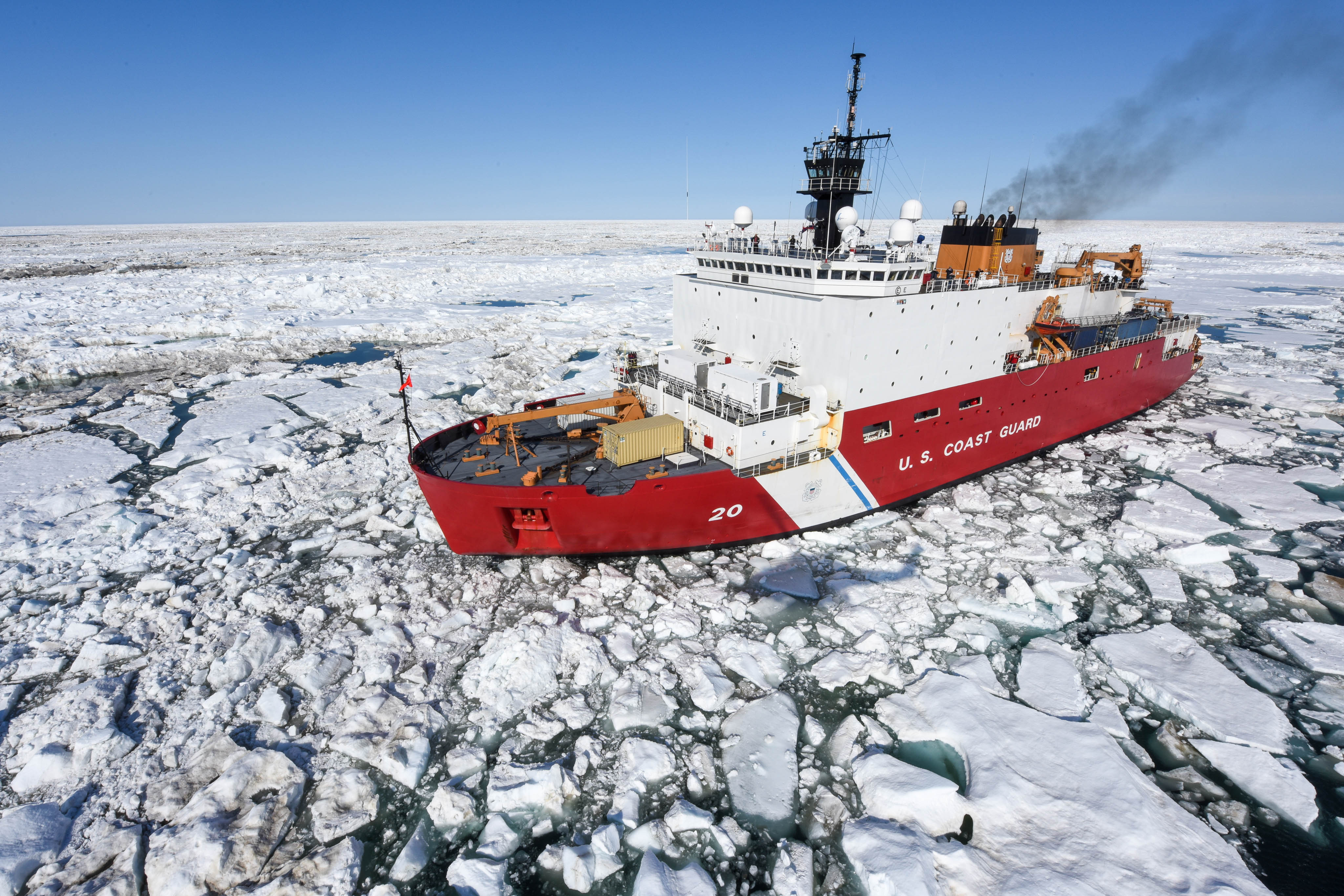US Coast Guard prepares for annual Arctic operations, but with coronavirus precautions
The Coast Guard will still have a summer presence in the U.S. Arctic — but some elements will have to be modified.

The U.S. Coast Guard will conduct its seasonal Arctic Alaska operations this summer and fall, despite the coronavirus pandemic, leaders said last week.
But the scope of those operations and the details of now-necessary health precautions have yet to be made final, said the Coast Guard officials, speaking at an online event on COVID-19 Impacts in the Arctic hosted by the Washington-based Wilson Center.
“Our Arctic strategy is unchanged. The pandemic has not changed our priority, our intention to continue to uphold American sovereignty, advance national security interests and promote economic prosperity throughout the Arctic. That remains absolutely unchanged,” Coast Guard Vice Admiral Linda Fagan, in charge of Pacific operations, said at the conference.
There will be a 2020 Arctic Shield operation, the annual program that stations Guardsmen seasonally in the Alaskan Arctic, she said. And the Coast Guard icebreaking cutter Healy will sail on its annual research cruise. “Everyone is postured and remains operationally ready to conduct operations and meet our mission requirements in the high latitudes,” she said.
But there will be some operational changes in the way those operations are conducted and the Arctic mission is pursued, Fagan said.
“We are mindful of the many communities in and around Alaska and are taking all precautions to be sure that we don’t inadvertently help spread the pandemic,” she said. That includes such measures as use of personal protection gear, additional hygiene tasks and enhanced medical checks of crew members, she said.

The summer’s plan for the Arctic Alaska operations, which are run out of the Coast Guard’s Anchorage sector, has yet to be fully determined, officials said.
But one aspect is near-certain: a continuation of the Marine Safety Task Force program to inspect bulk fuel facilities in western Alaska, many of which need repair or maintenance. The program’s goal is to find and document serious problems and then find ways to get those problems fixed through existing federal and state programs.
Past annual inspection of these fuel sites were done by the Anchorage sector alone, but the establishment of the Marine Safety Task Force enabled a beefed-up program with personnel from elsewhere in the nation.
Last year, the task force’s first season, Coast Guards members were able to complete visits to 60 percent of the nearly 400 fuel facilities, said Captain Sean Mackenzie, commander of the Coast Guard’s Anchorage sector.
“This year we planned to visit the remaining 40 percent and go back to some of the ones that had a significant number of deficiencies again for a second visit. And of course I said we planned, past tense,” MacKenzie said at the conference.
The Coast Guard still has the assets, capability and desire to visit all those sites, he said, “but the reality is it’s going to be something less than that,” he said.
The Anchorage sector has now developed a risk matrix to determine the most important sites to visit this summer, MacKenzie said. The Coast Guard is also making sure that the communities in remote regions, many of which remain closed to outsiders because of contamination concerns, will welcome visits later in the year.
“What we don’t want to do this year is force ourselves into a remote community when COVID-19 is going on,” he said.
The Coast Guard in Alaska will also continue to get community input for its Port Access Route Study for the Chukchi and Beaufort seas, said Rear Admiral Matthew Bell, commander of the Coast Guard in Alaska.
That project was launched in late 2018 to try to enhance ship safety in a region where traffic is increasing as sea ice retreats.
As it crafts the study, the Coast Guard has held in-person meetings in Arctic communities along the Chukchi and Beaufort coasts, Bell said. But right now, the community comments are being solicited by questionnaire and other remote methods, he said.
“That input is OK. It’s not the best,” he said.
The Coast Guard still wants to be able to meet with community members later this summer to learn about local concerns and needs, he said.
Some delays seem inevitable, however.
The period for public comment on the study has already been extended twice, Bell said, and it will likely be extended again.